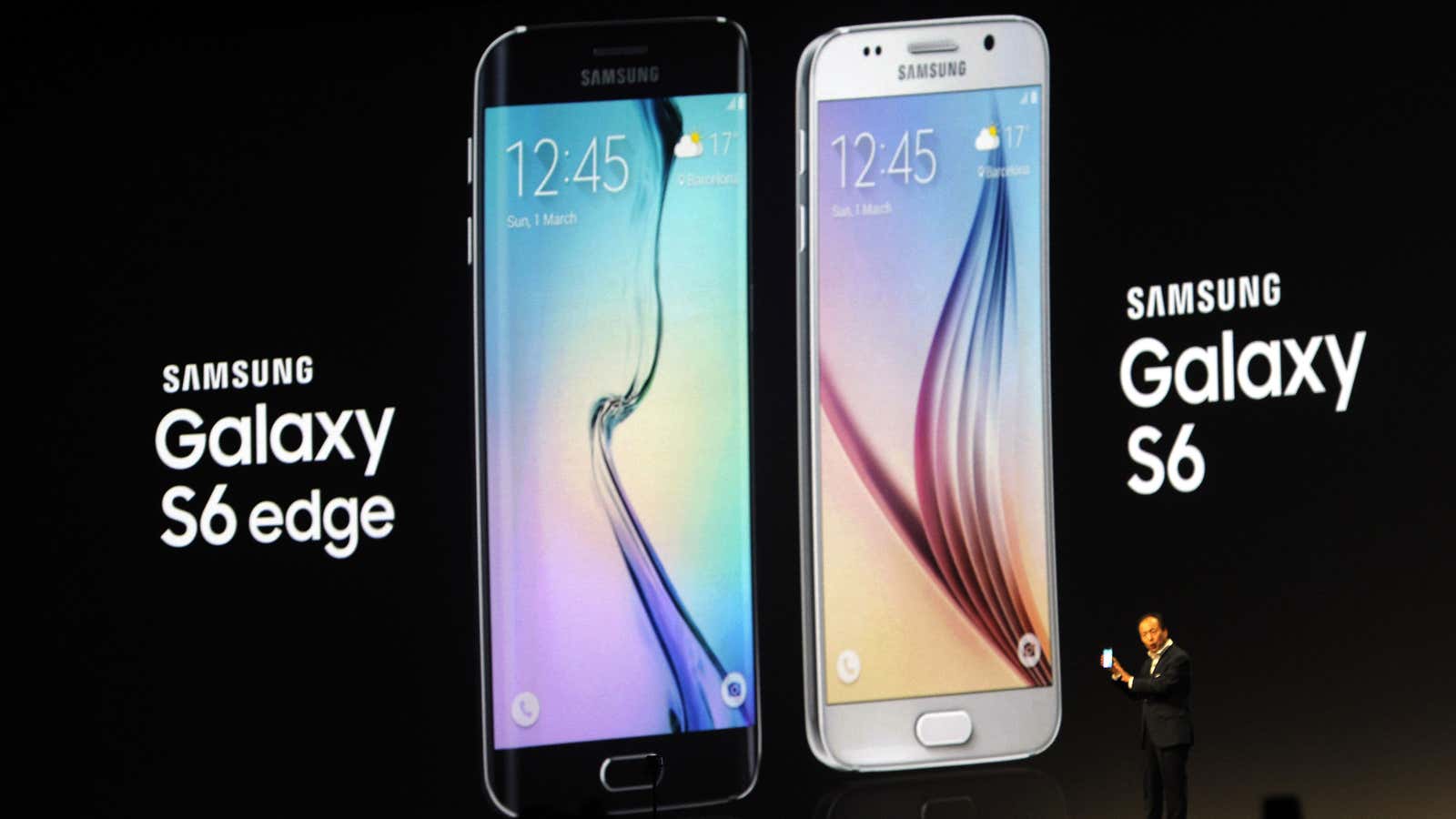Samsung’s not sitting idly by while Apple and Google duke it out in mobile payments. The world’s largest smartphone maker today debuted at Mobile World Congress its latest flagship phones, the Galaxy S6 and S6 Edge, complete with fingerprint reader and a new mobile payments platform called Samsung Pay.
If this sounds familiar, it’s because Apple did the same thing last fall, when it debuted the iPhone 6 and 6 Plus, which uses a fingerprint reader to verify transactions on Apple Pay.
When the company launched Apple Pay, it made a strong case for security. A key feature, tokenization, generates a one-time use token instead of providing merchants with credit card numbers. Biometrics also help reduce the risk of fraud, a fact that reportedly helped Apple negotiate lower processing fees.
Samsung, which last month announced it acquired LoopPay, is making security a main selling point as well. Samsung Pay, which will go live this summer, also uses a fingerprint reader and tokenization technology from its partners, Visa and MasterCard.
However, a key differentiator for Samsung Pay is a technology called Magnetic Secure Transmission, which will allow for contactless payments with 90% of existing credit card terminals. It works by mimicking the swipe of a magnetic stripe by using a small metal coil to generate changing magnetic fields over a short period of time.
Apple Pay, in contrast, has faced hurdles with its rollout, most notably when it was banned at Walmart, CVS, and Rite Aid—companies that are instead placing their bets on CurrentC, a competing mobile payments system from the Merchant Customer Exchange. In addition, using Apple Pay requires merchants to upgrade outdated credit card terminals so they have Near Field Communication.
This means that even though Samsung has had a late start in mobile payments, it’ll have an easier time catching up. Right now, it’s anybody’s game.
Despite its first-mover advantage, Google Wallet, which debuted in 2011, has largely been a flop. But the search giant is in the process of rebooting Google Wallet. Last week, it partnered with Verizon, AT&T, and T-Mobile—the very wireless carriers that blocked Google Wallet from their phones and stalled its growth—and acquired assets from their joint mobile wallet venture, Softcard. Google is also reportedly getting ready to debut a payment API called Android Pay at its developer conference in May.
